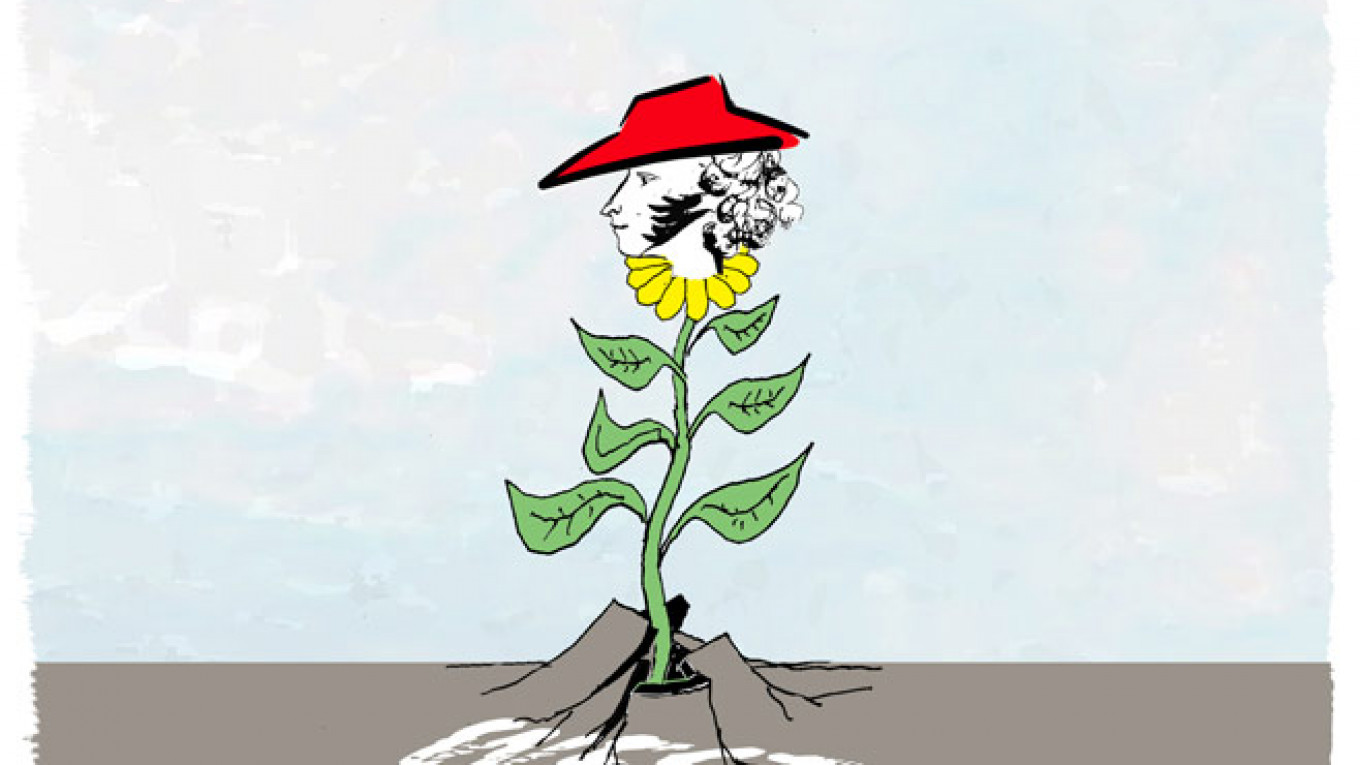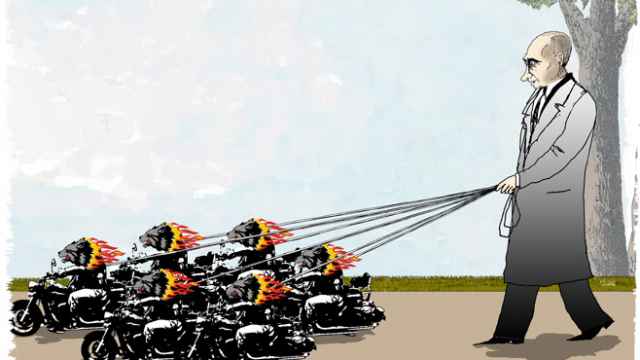Current dialogue between Russia and the West scarcely deserves the name. Too often, it is simply a contest of postures and a recitation of grievances, each side clinging to positions stripped of nuance or scope for compromise. This is doing no one any good. For all kinds of reasons, the West needs more unsentimental Russophiles.
A Russophile is not the same thing as a Kremlin stooge, the kind of abject apologist described as a Putin Versteher, a "Putin understander" in the German political lexicon. Instead, it is someone who feels an affinity, sympathy and regard for Russia, an outsider who enjoys Russia and Russians, who wishes the country well.
Why unsentimental? Russian Studies courses in the West are liberally populated with starry-eyed young things who fell in love with Pushkin, Dostoevsky or Bulgakov. Expecting the spiritual, the deliberative, the darkly philosophical, they take one look at Moscow's high-octane nightlife, glitzy chain stores, ubiquitous cellphones and, whether they admit it or not, feel betrayed, or feel Russians have betrayed themselves.
In my experience, Russians are able to reconcile Pushkin and Pizza Hut, and they deserve to be more than convenient outsiders' caricatures. Instead, true Russophiles need to appreciate Russia as it is now, and in its own terms.
That said, Russophiles need not be Kremlophiles. An excellent reason to criticize the current administration is not what it is doing to Ukraine but what it is doing to Russia. Push through the tattered curtain of orange-and-black St. George's ribbons and there is a country being systematically isolated from a modern, liberal, developed world that is the aspirational goal of so many Russians.
A country where spending on education and infrastructure takes second place to empire and pageantry. A country where a 17-year-old girl can be forced into a polygamous marriage but a 70-year-old woman cannot get painkillers and cancer medication.
There needs to be room for nuance. Russians cannot simply be characterized as either the malicious collaborators with Russian imperialism, nor its hapless victims. They can be either, both or neither. Likewise, not everything the Kremlin does is wrong, selfish or vicious. True Russophiles need to have a clarity of vision and openness of mind to distinguish between the good, the bad, and the ugly.
But why does this kind of nuance matter, what good would it be for more clear-sighted Russophiles to be heard in the West?
Above all, to inform policy. There are some smart, well-informed Russia hands in the United States and in other Western diplomatic and political elites. There are also many who are none of the above.
A continued policy of rotation in foreign services, in part precisely to avoid the risk of officials "going native," often means expertise and empathy is misallocated. Too many within some embassies live their lives in the expat bubble, and others build up a knowledge of Russia, its language and its ways, only to end up working in Rwanda or Romania.
The irony is that whether the goal is regime change or to build new bridges with the Kremlin, the odds are that it will be done better by people who don't just know Russia intellectually, or through briefings and classes, but feel it.
So where do you find these open-eyed Russophiles? First and foremost, you probably find them in Russia. Some expats never really engage with the country, especially those living within the gated community bubble, but most are there because they want to be, because something in Russia speaks to them.
Being in Russia is one of the best inoculations against being naively seduced by the official line (I've heard some of the most devastating critiques of the Kremlin come from RT employees who by day have to peddle it), and it probably ensures an understanding of the complexities of this country.
In the long term, of course, it means also cultivating them. Not every student studying Russian at school, reading Gogol as an undergraduate, or even grappling with Russian politics at graduate school will end up becoming a Russia hand, let alone managing to avoid the seductions of the extremes.
But the new generations willing to work, study and travel in Russia, to open themselves to it, will come from this cohort. At a time when Western teaching of Russia remains under pressure, when research grants are harder to get, and also when Moscow itself is much less open to outsiders, this is sometimes an uphill struggle.
The irony is that both Washington and Moscow would benefit from the rise of the unsentimental Russophiles. The West could do with sharper policy, and Russia needs better friends and interpreters than the self-interested opportunists and self-righteous conspiracy theorists on which it too often relies at present.
They might also have to abandon some of their comfortable stereotypes and grapple with a more complex and contradictory notion of Russia. Growing up is always tough, though.
Mark Galeotti is professor of global affairs at New York University.
A Message from The Moscow Times:
Dear readers,
We are facing unprecedented challenges. Russia's Prosecutor General's Office has designated The Moscow Times as an "undesirable" organization, criminalizing our work and putting our staff at risk of prosecution. This follows our earlier unjust labeling as a "foreign agent."
These actions are direct attempts to silence independent journalism in Russia. The authorities claim our work "discredits the decisions of the Russian leadership." We see things differently: we strive to provide accurate, unbiased reporting on Russia.
We, the journalists of The Moscow Times, refuse to be silenced. But to continue our work, we need your help.
Your support, no matter how small, makes a world of difference. If you can, please support us monthly starting from just $2. It's quick to set up, and every contribution makes a significant impact.
By supporting The Moscow Times, you're defending open, independent journalism in the face of repression. Thank you for standing with us.
Remind me later.








